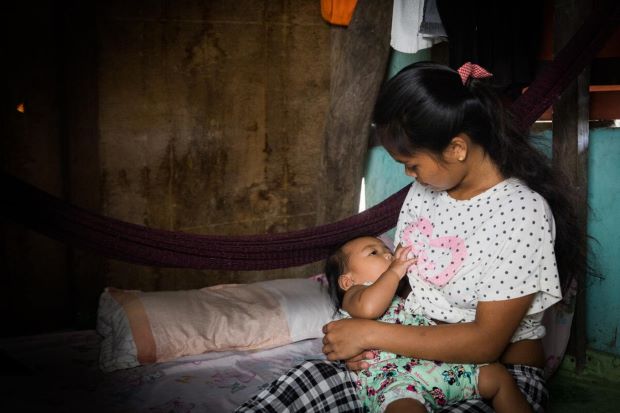By Naushalya Rajapaksha
COLOMBO – An intense discourse has engulfed the town in the wake of this relatively recent, yet now about a month-old, alteration to the Penal Code, unveiled through a Gazette notification on February 13, 2024. The amendment, mandated for publication by the Minister of Justice Wijeyadasa Rajapakshe has sparked considerable deliberation. The amendment is victorious in recognizing many reforms that all the women’s rights advocacy groups have been advocating for change in Section 363, Rape.
Men can now be raped too
The ground-breaking facet of this 2024 proposed amendment lies in its acknowledgement of a hitherto overlooked reality: men can also fall prey to rape. Previously entrenched in Sri Lankan law was the notion that only women could be victims of rape perpetrated by men. However, the amendment rectifies this by substituting the gender-specific language with gender-neutral terms, thereby encompassing all as ‘victims’ and ‘offenders’.
Marital Rape is criminalized
Another watershed moment is the criminalization of marital rape by an implied repeal, a longstanding demand of advocacy groups. The previous legal stance, which allowed sexual intercourse without consent within marriage under certain conditions, has been rightfully condemned. The proposed amendment unequivocally asserts that consent must be obtained regardless of marital status, debunking the notion of conjugal entitlement.
Implied repeal of being able to have sex with 12-year-old wives
Thirdly, the previous exception to having sexual intercourse with a girl below the age of sixteen years of age, which was unless the woman is his wife who is over twelve years of age and is not judicially separated from the man, has now been impliedly repealed. Thus, the amendment has addressed this contentious issue of age consent, particularly concerning the legality of sexual intercourse with underage spouses. By impliedly repealing previous provisions that overlooked such acts under certain circumstances, the amendment aligns with international standards and safeguards the rights of minors.
Judicial Discretion in Sentencing: The 03 options
Notably, the amendment introduces a nuanced approach to sentencing in cases involving underage victims and young offenders. While upholding the age of consent at 16, it affords judges the discretion to consider mitigating factors when imposing sentences, recognizing the complexity of individual cases.
This means that an offender who has had sexual intercourse with a victim below the age of 16 will still be found guilty and in fact will receive a minimum mandatory sentence of imprisonment for 10 years not exceeding 20 years, unless and otherwise the victim is below 16 and above 14 years of age, and the offender is 22 and below and “no sufficient evidence” can be brought to prove “to the satisfaction of the court that sexual penetration had been with the consent of the victim” (option 03)
However, if “sufficient evidence” can be brought to prove “to the satisfaction of the court that sexual penetration (by the offender who is 22 and below) had been with the consent of the victim” (who is below 16 and above 14 of age), then the court upon conviction may (the word ‘may’ in law means not mandatory but discretionary) impose a sentence of imprisonment for a term less than 10 years (option 01).
Further, it allows the court to impose a suspended sentence in “appropriate circumstances” (option 02). Again, it is discretionary, and not mandatory, allowing the judges to use these options as and when necessary.
Hence, the proposed amendments to Section 363 of the Penal Code 2024 affirm the prevailing legal principle that the age of consent remains at 16 years. There is no indication whatsoever that the age of consent is being lowered to 14 years. Rather, it offers judicial discretion in sentencing when the offender is aged 22 or below and the victim is between 14 and 16 years old.
However, beyond the realm of legal semantics, significant apprehensions arise. The Sri Lankan penal code defines a child as an individual below 18 years of age, a classification echoed by the International Covenant on Civil and Political Rights Act. Moreover, the legal age for various significant milestones, such as voting, marriage, and obtaining a driver’s license, is uniformly set at 18.
In light of these established legal benchmarks, the rationale behind the Minister of Justice’s proposal to allow judicial leniency for offenders aged 22 or below, and victims aged between 14 and 16, warrants scrutiny. Particularly noteworthy is the substantial eight-year age gap between 14 and 22. What justification exists for lowering the age of consent from 16 to 14? Is there empirical evidence from Sri Lanka indicating full development of the pre-frontal cortex and secondary sexual characteristics by age 14? Are there documented regrets from India regarding the increase in the age of consent from 16 to 18? Are there reports suggesting that teenage mothers aged 14 will be seamlessly integrated into schools without social stigma or discrimination, with their education and welfare guaranteed by the state?
Until these pivotal inquiries are satisfactorily addressed, the basis for the Minister of Justice’s proposal to afford leniency in sentencing for the ‘consensual rape’ of a ‘child’ by an ‘adult’ remains dubious, amidst otherwise commendable amendments to the penal code.
-Naushalya Rajapaksha is a Youth & Gender Expert Consulting on Research and Policy Advocacy with 10+ years of Transformative Training



Comments are closed, but trackbacks and pingbacks are open.